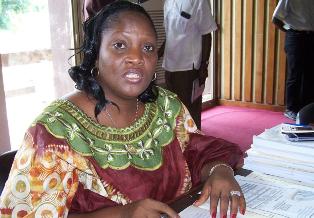Code of Conduct Debate: Let’s Engage the Supreme Court Now
On Monday, May 12, 2015 President Ellen Johnson-Sirleaf signed into law a national Code of Conduct for ‘all public officials and employees’ of the Government of Liberia. The passage of the National Code of Conduct is in consonance with Article 90c of the 1986 Constitution of Liberia, which states that “the Legislature shall prescribe a Code of Conduct for all public officials and employees, stipulating the acts which constitute
conflict of interest or are against public policy, and the penalties for violation thereof”.
Since passed and signed, debates on the Code has been less tensed until in recent time, especially in the wake of and following the just-ended National Convention of the ruling Unity Party. The application of the Code of Conduct against a number of ‘appointed public officials’ who now serves in strategic positions within the Unity Party is the focus of the debate. While some consider the presence of these public officials in key
positions of the UP as a violation of the Code, others see it otherwise, in terms of pursuing any affront thereof through legal means.
Section 5.1 of the Code states that ‘All Officials appointed by the President of the Republic of Liberia shall not: a) engage in political activities, canvass or contest for elected offices; b) use Government facilities, equipment or resources in support of partisan or political activities; c) serve on a campaign team of any political party, or the campaign of any independent candidate”, while 5.2 says “Wherein, any person in the category stated in section 5.1 herein above, desires to canvass or contest for an elective public position, the following shall apply; a) Any Minister, Deputy Minister, Director-General, Managing Director and Superintendent appointed by the President pursuant to article 56 (a) of the Constitution and a Managing Director appointed by a Board of Directors, who desires to contest for public elective office shall resign said post at least two (2) years prior to the date of such public elections; b) Any other official appointed by the President who holds a tenured position and desires to contest for public elective office shall resign said post three (3) years prior to the date of such public elections; c) However, in the case of impeachment, death, resignation or disability of an elected official, any official listed above, desirous of canvassing or contesting to fill such position must resign said position within thirty days following the declaration by the National Elections Commission of the vacancy”.
More puzzling and even confusing is the issue of the definition of “public officials” mot really mentioned by the Code of Conduct, i.e., who a public official is as enshrined in the Code.
Perhaps it is in view of the foregoing that Members of the Legislature – empowered by the Constitution to prescribe a Code of Conduct for ‘all public officials’ and employees of the government are counting themselves out of Section 15.1 of the Code on grounds that they are ‘elected officials’. This may not only be unfair, but very wicked and divisive.
While public opinion may be over-shadowing the views of those who
believe there’s violation, it is prudent and in the best interest of
our democracy that legal recourse take precedence in interpreting this
matter.
It is furthermore in our best interest to pursue this issue through
the Supreme Court of Liberia to save us time and energy since
Presidential and Representative Elections are about a year and half
away.
Other than pursuing the “court of public opinion’ to address such
issue, people of well-meaning national pride and those who feel
aggrieved must now seize the opportunity to constructively engage the
Supreme Court of Liberia with this matter to avoid future
embarrassment during the electoral process.
[bsa_pro_ad_space id=1]
No matter how many radio talk shows, advocacies, intellectualism and
so forth we pursue now and then to handle this matter, it is only the
Supreme Court of Liberia that can finally decide or interprete what we
all claim to be understanding about these aspects of the National Code
of Conduct.
Opinion
Calestous Juma is Professor of the Practice of International Development at Harvard’s Kennedy School of Government. He is the author of the forthcoming book Innovation and Its Enemies: Why People Resist New Technologies.




















